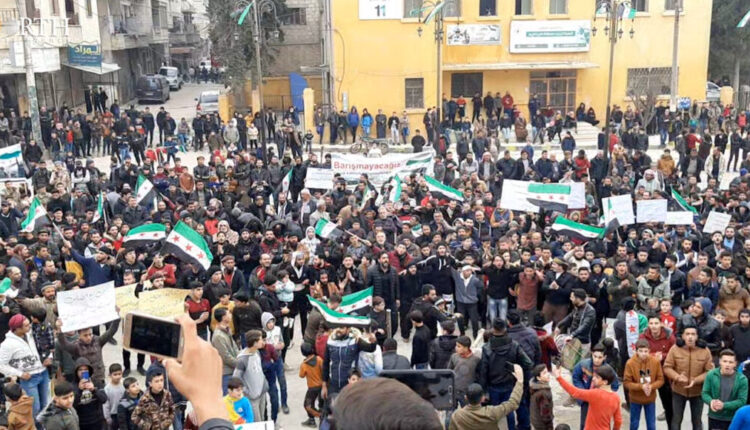
IDLIB, Syria (North Press) – Despite both were formed under the auspices of Turkish intelligence, the division continue to increase between the two de-facto governments that rule northern and northwestern Syria, namely the Salvation Government representing Hayat Tahrir al-Sham (HTS, formerly al-Nusra Front) and the Syrian Interim Government representing the opposition’s Syrian National Coalition (SNC).
Abdullah al-Omar, a human rights activist in Idlib, says, “The division is fueled by Turkish intelligence for strategic interests, based on the principle of divide and rule. The intra-opposition unity will take it out of Turkish control. The ongoing dispersion, however, keeps the Turkish state the sponsor of the region and in control of the Syrian issue and the [opposition] factions which it uses in its regional wars.”
The Salvation Government was formed in November 2017, while the interim government was formed in 2013.
Unlike the Interim Government which enjoys over some international recognition and is backed by Turkey, the Salvation Government does not have any, as it is the civilian wing for HTS, which is classified as a terrorist group by the US, Europe and even Turkey.
The division started a month after announcing the formation of the Salvation Government, which came after the latter evacuated all the headquarters of the Interim Government in Idlib and its countryside and forced its employees to leave towards the areas controlled by the Interim government, causing a rift between the two opposition parties.
According to Muhammad Hamed, a pseudonym for an Idlib-based Syrian activist, the division increased as HTS started, at the end of 2017, to take over economic resources in the Interim Government’s areas of control, such as electricity, water and the Internet.
Widening the rift, the Salvation Government also took control of the strategic Bab al-Hawa border crossing, and pushed out the Interim Government from the area. “This was the beginning of hostility between the two parties, especially since the Interim Government relied on this crossing as its most important source of income,” said Hamed.
Ola al-Hassan, a pharmacist in the city of Idlib, expressed her annoyance at this division, “as it badly reflected on the livelihoods of citizens and the education of their children, not to mention obstructing any political solutions for the Syrian crisis.”
With regard to the normalization efforts between Ankara and Damascus, al-Hassan told North Press, “The Interim Government seems unable to strongly express its opinion regarding the Turkish moves that aim to embrace the [Syrian] regime because the Interim Government is just a feather in Erdogan’s hands. As for al-Jolani [HTS’ leader], he stressed that he has several cards that will end any Turkish attempts at normalization with the regime.”
Idlib residents believe that the areas held by the opposition’s Syrian National Army (SNA), the military wing of the Interim Government, “will be directly affected by the normalization, given that all military and civil institutions there are directly managed by Turkish intelligence, leaving the SNA factions’ leaders unable to object,” she said.
As for the areas held by the Salvation Government, however, “The residents believe that the situation would be different, especially with the recent statement made by al-Jolani in which he confirmed his willingness to rapture such efforts.”
According to Ahmad Mulla, a pseudonym for an official within the Salvation Government, “These steps by the Salvation came to meet the demands of the people of northwestern Syria following the great administrative and political failure of the Interim Government, locally and regionally, in addressing the issues of the revolution since its establishment in 2013.”
